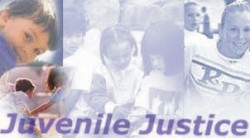Rights Corner
Determining age and administration of justice
Oli Md. Abdullah Chowdhury
 When a child comes in contact with law, police officer has a number of options other than sending him to the jail. However, determining age of juvenile is very crucial when there is a conflict with law. While there are conflicting laws in determining age of criminal responsibility, Children Act empowers police officer to release children under the age of 18 with a few exceptions. If a police officer neglects his duty in recording the age of the juvenile or distorts information, there is hardly a remedy available.
When a child comes in contact with law, police officer has a number of options other than sending him to the jail. However, determining age of juvenile is very crucial when there is a conflict with law. While there are conflicting laws in determining age of criminal responsibility, Children Act empowers police officer to release children under the age of 18 with a few exceptions. If a police officer neglects his duty in recording the age of the juvenile or distorts information, there is hardly a remedy available.
It has been reported in the Prothom Alo (Friday September 9, 2011) that police in Kishoreganj provided a charge sheet against a juvenile in the court of judicial magistrate. Although the accused was only 9 years old, the investigation officer reported him to be of 22 years old. The issue of age came forward when his family produced birth certificate of the child. Court of cognizance, therefore, had asked investigator to appear before the court in the following date and explained the matter in person. It is not the first occurrence where age of the juvenile is not determined authentically.
Convention on the Rights of the Child and juvenile justice
Bangladesh became one of the earliest signatories of UN Convention on the Rights of the Child (CRC). Later, Bangladesh ratified the convention. Ratification signifies an agreement to be legally bound by the terms of the Convention and Bangladesh through ratification is bound by the term of the convention including the term of juvenile justice.
It has been stated in Article 37 (b), “No child shall be deprived of his or her liberty unlawfully or arbitrarily. The arrest, detention or imprisonment of a child shall be in conformity with the law and shall be used only as a measure of last resort and for the shortest appropriate period of time”. The spirit of the convention is that arrest shall be used only as a measure of last resort.
Minimum age of criminal responsibility
It has been stated in 40 (3) of the CRC, “States Parties shall seek to promote the establishment of laws, procedures, authorities and institutions specifically applicable to children alleged as, accused of, or recognized as having infringed the penal law, and, in particular: The establishment of a minimum age below which children shall be presumed not to have the capacity to infringe the penal law”. However, the minimum age of criminal responsibility in Bangladesh was raised from 7 to 9 years old after years of advocacy work.
Birth and Death Registration Act
An act was promulgated in 2004 to make birth and death registration compulsory. In the Section 3 of the Birth and Death Registration Act, supremacy of the Birth and Death Registration Act over all acts has been established to make this registration mandatory.
Children Act 1974 and Bail of Juveniles
Section 48 of the Children Act provides that where a person apparently under the age of 16 years is arrested on a charge of non-bailable offence and cannot be brought forthwith before a court, the officer-in-charge of the police station may release him/her on bail. The next section states that where a person apparently under the age of 16 years having been arrested is not released on bail, the officer-in-charge of the police station shall cause him/her to be detained in a remand home or a place of safety until he can be brought before a court. A court, on remanding for trial a child who is not released on bail, shall order him to be detained in a remand home or a place of safety.
Conclusion
Professor Mizanur Rahman in his book, “Tracing the Missing Cord- A Study on the Children Act, 1974” observed “We don't know any single instance where a single Investigation Officer has been punished for this carelessness. Most of the police officers do not have knowledge about the Children Act”. This culture of impunity must come to an end and those responsible for the negligence of duty towards juvenile must be brought to book. Practices of maladministration while dealing with juveniles would then decline.
The writer is a human rights worker.